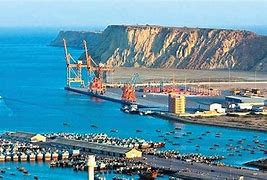The world’s largest car carrier, BYD Shenzhen sets sail with over 7,000 NEVs for Brazil showcasing China’s advancements in the vehicles industry.
China’s homegrown car carrier, “BYD Shenzhen,” the largest of its kind globally, embarked on its inaugural voyage on Sunday evening, carrying over 7,000 new energy vehicles (NEVs) from BYD. The vessel, designed by the Shenzhen-based automaker, left Taicang Port in Jiangsu Province and is expected to arrive at Itajai Port in Brazil after more than 30 days at sea.
The BYD Shenzhen, constructed by a shipyard under the China Merchants Group, has a capacity of 9,200 standard spaces and is BYD’s fourth specialized ship for transporting NEVs. The three earlier vessels were also independently built in China.
Measuring 219 meters in length and 37.7 meters in width, the BYD Shenzhen was delivered on April 22 in Yizheng, Jiangsu. The ship incorporates advanced green technologies, such as energy-efficient main engines, a Boil-Off Gas (BOG) recondenser, and coatings designed to reduce drag and prevent fouling.
Wang Junbao, BYD’s general manager of public business, highlighted the vessel’s advanced loading system and protective technologies, which are designed to provide efficient, low-carbon logistics for BYD’s global NEV deliveries. Wang also emphasized that the BYD Shenzhen plays a significant role in BYD’s global expansion, acting as a “maritime bridge” that connects Chinese innovation with international markets, sharing the benefits of Chinese technology globally.
According to the General Administration of Customs of China, the country’s automobile exports surpassed 6.4 million units in 2024, securing the top global position for the second consecutive year.
To meet the increasing demand for vehicle transport, Chinese automakers, including BYD, Chery, and SAIC Motor, have been establishing their own fleets in recent years. In January 2023, Guangzhou Shipyard International confirmed two dual-fuel car carrier orders for BYD, while Chery and SAIC Motor also announced plans for fleet expansions.
By the first quarter of 2025, BYD’s car carriers had transported over 25,000 NEVs internationally. Currently, BYD’s vehicles are available in more than 400 cities across over 100 countries and regions.
In 2024, BYD’s international sales reached 417,200 units, with Brazil emerging as a key market, seeing a 328% year-on-year growth, with 76,700 units sold. The introduction of the BYD Shenzhen is expected to further strengthen the company’s presence and delivery capacity abroad.
Xie Xiaowen, an expert from the China Communications and Transportation Association, stated that owning a fleet helps automakers ensure stable export operations, reduce transportation costs, and ensure timely product delivery to global customers.
Related Posts

















